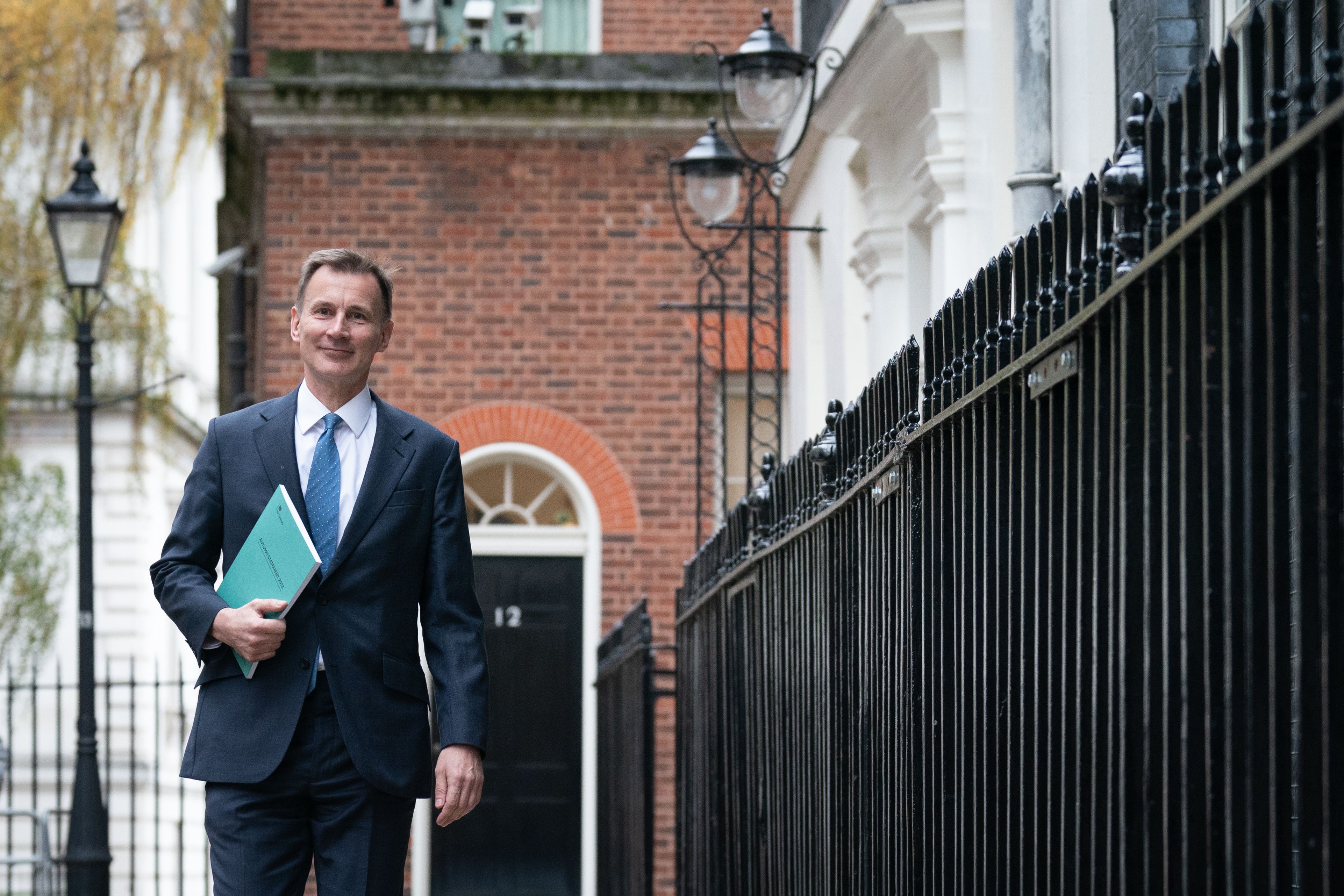Jack urges Scottish Government to use cash ‘wisely’ and not raise income tax
But Scottish Finance Secretary Shona Robison said the autumn statement had not provided the funding devolved governments need.

Holyrood ministers have been urged to spend their cash “more wisely” amid speculation the Scottish Government could be about to up income tax for higher earners north of the border.
Deputy First Minister and Scottish Finance Secretary Shona Robison will confirm any tax changes when she unveils the Scottish Budget for next year on December 19.
Public sector spending will be “extremely difficult indeed” as a result of Chancellor Jeremy Hunt’s autumn statement on Wednesday, she warned.
Ms Robison accused Mr Hunt of failing “to provide the funding that devolved governments need”.
Speaking in Holyrood, Ms Robison told MSPs “this makes the challenges for our budget next year even more severe, including for the NHS”.
The UK Government insisted Scotland will receive £545 million in Barnett consequentials – cash which is due to the devolved administrations as a result of funding decisions taken south of the border – over the course of 2023-24 and 2024-25.
Scottish Secretary Alister Jack challenged the Scottish Government to use this “wisely” and not put up taxes in next month’s Budget.
He said: “They should not be, in my view, raising taxes. I think they should be spending the money they have more wisely.”
With the Chancellor having made clear his aim to boost economic growth through cutting tax – including a 2p reduction in national insurance from January which will benefit some 2.4 million Scots – Mr Jack said there is a “concern” the UK Government’s efforts could be impacted by tax rises north of the border.
He added: “I think making Scotland the highest taxed part of the United Kingdom is a mistake and we have seen over the last four or five years the growth rates in Scotland have been slower than the growth rates across the UK.”
Mr Jack said UK Government decisions, coupled with an increase in the minimum wage to £11.44 an hour, would “mean a pay boost for millions of workers right across Scotland”.
Mr Hunt confirmed the state pension is to rise by 8.5% from next April, and the Scottish Secretary said “pensioners will get a £900 a year increase”.
Mr Jack insisted: “This is an autumn statement to support hard-working families and grow our country’s economy. It is great news for Scotland.”
But Ms Robison said: “Prior to the autumn statement I wrote to the Chancellor urging him to provide a funding settlement that enables us to invest in public services, vital infrastructure, and fair public sector pay increases.
“We have seen no such thing from the autumn statement today, and what has emerged is a set of choices that will have a devastating impact on our public services next year.
“This autumn statement simply does not go far enough in delivering the funding that we need.
“This makes the challenges on our budget even more severe.”
Roz Foyer, general secretary of the Scottish Trades Union Congress, accused the Chancellor or using cuts to key public services to “bankroll some desperate pre-election giveaways”.
She added: “With workers living through the largest reduction in real living standards on record, and with average mortgage payments alone increasing by £2,600, the Chancellor is frankly deluded if he thinks a £450 cut in national insurance will touch the sides.
“Far from robbing Peter to pay Paul, the Tories are robbing everyone.”
John Dickie, director of the Child Poverty Action Group in Scotland, said: “The national insurance cut will increase take-home pay for some, but not for those whose income is already too low to benefit from it, nor for those on low incomes for whom it simply reduces entitlement to universal credit.”
The drinks industry, however, welcomed the freeze in alcohol duty announced by the Chancellor.
Mark Kent, chief executive of the Scotch Whisky Association, said it is “raising a dram to the Chancellor’s decision”.
He added: “With cost pressures hurting distillers large and small, the Treasury has provided some much-needed certainty and stability for the year ahead that will allow us to get back to doing what we do best – making a world-class spirit, with a global reputation, which creates jobs and boosts growth here at home.”
Age Scotland also welcomed the autumn statement, with chief executive Katherine Crawford describing the rise in the state pension as “much-needed good news” for many older Scots.
She said she hopes it will “go some way towards helping older people maintain an acceptable standard of living in later life”.
Subscribe to Independent Premium to bookmark this article
Want to bookmark your favourite articles and stories to read or reference later? Start your Independent Premium subscription today.
